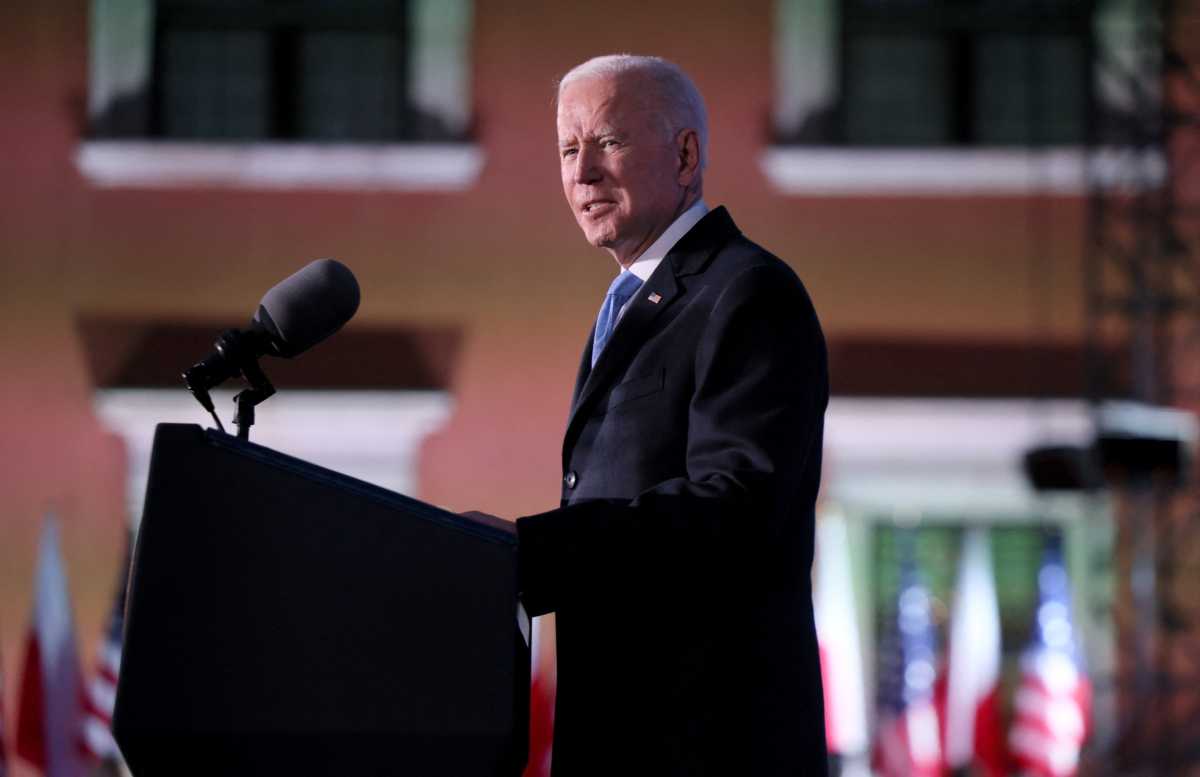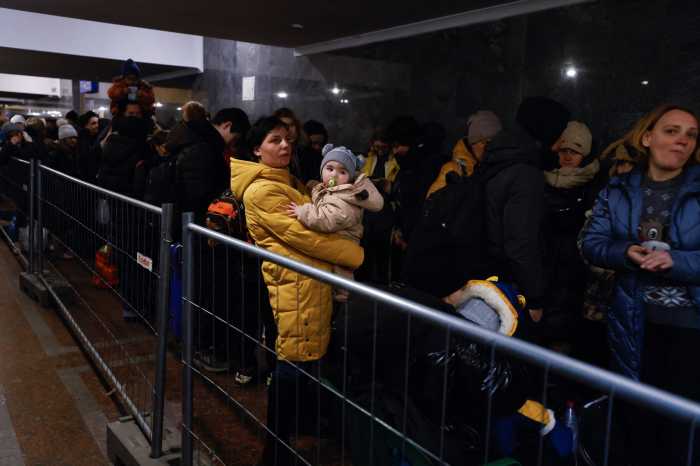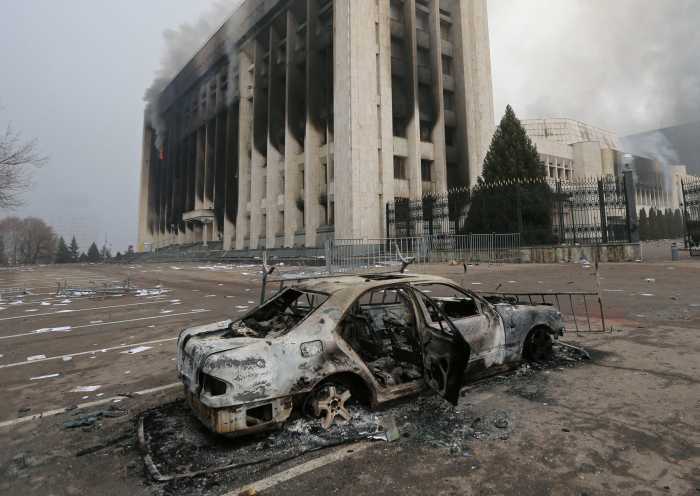By Guy Faulconbridge
LONDON – The Kremlin said on Monday that U.S. President Joe Biden’s remark that Vladimir Putin “cannot remain in power” was a cause for alarm, in a measured response to a public call from the United States for an end to Putin’s 22-year rule.
“For God’s sake, this man cannot remain in power,” Biden said on Saturday at the end of a speech to a crowd in Warsaw. He cast Russia’s invasion of Ukraine as a battle in a much broader conflict between democracy and autocracy.
The White House tried to clarify Biden’s remarks and the U.S. president said on Sunday he had not been publicly calling for regime change in Russia, which is the world’s largest country by area and has more nuclear warheads than any other.
Asked about Biden’s comment, which received little coverage on Russian state television, Kremlin spokesman Dmitry Peskov said: “This is a statement that is certainly alarming.”
“We will continue to track the statements of the U.S. president in the most attentive way,” Peskov told reporters.
Putin has not commented publicly on Biden’s remark.
In his first live appearance since the remark, Putin was shown on state television on Monday being briefed by Alexander Sergeev, president of the Russian Academy of Sciences, on the accumulation of carbon in mollusks and the use of artificial intelligence to decipher ancient Tibetan manuscripts.
Putin has been Russia’s paramount leader since Boris Yeltsin resigned in 1999. Dmitry Medvedev served as president from 2008 to 2012 while Putin was prime minister before returning to the Kremlin.
Under constitutional changes approved in 2020, Putin could seek election for two more 6-year terms as president, allowing him to stay in power until 2036.
The Kremlin says Putin is a democratically elected leader and that it is for the Russian people, not Washington, to decide who leads their country.
But such a blunt remark from Biden appeared to have breached the norms of U.S.-Russian and even U.S.-Soviet relations. No U.S. leader has publicly called for the departure of any Kremlin chief for decades.
The remark looks likely to further fuel concerns among Putin’s closest circle that Washington wants him ousted and to impose its own views on Russia and the world.
Medvedev, now deputy secretary of Russia’s Security Council, said on March 23 the world could spiral towards a nuclear dystopia if Washington pressed on with what the Kremlin casts as a long-term plot to destroy Russia.
Medvedev painted a grim picture of a post-Putin Russia, saying it could lead to an unstable leadership in Moscow “with a maximum number of nuclear weapons aimed at targets in the United States and Europe.”
Security Council chief Nikolai Patrushev, previously head of the powerful Federal Security Service spy agency, has said Washington is bent on stoking a “color revolution” in Russia like those in Georgia, Ukraine and other post-Soviet states.
Top U.S. diplomats on Sunday played down Biden’s remark, and Biden, asked by a reporter as he departed a church service in Washington if he was calling for regime change in Russia, gave a one-word reply: “No.”
U.S. Secretary of State Antony Blinken told a news conference in Jerusalem that Biden was making the point that Putin couldn’t be empowered to wage war, adding that decisions on Russia’s future leadership were “up to the Russian people.”
Putin says Russia’s “special military operation” in Ukraine was necessary because the United States was using the country to threaten Russia and Moscow had to take action to stop what it calls Kyiv’s persecution of Russian speakers.
Ukraine has dismissed the claim of persecution as a baseless pretext for invading.





























